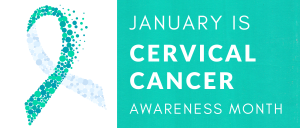By Ermiyas Males
The aim of comprehensive sexuality education is to provide young people with the professional knowledge, skills and attitudes they need to make informed decisions throughout their lives. By discussing topics such as consent, healthy relationships, gender equality, and reproductive health, they will be equipped to address complex issues in their communities and cultivate a culture of admiration and knowledge.
Research shows that well-designed approaches can help reduce cases of sexual and gender-based violence by improving attention, empathy and conversational skills among young people and everyone. Committing to integrating this education into the curriculum is vital to creating a safer, more informed society. Starting to do this is critical to shaping everyone’s values and attitudes. By promoting open and informed dialogue, we lay the foundation for a society that respects boundaries, promotes consensus and rejects violence.
Sex education provides people with important information about their bodies and relationships, while also promoting respectful attitudes. This inclusive approach can reduce and end social norms, promote a way of life where everyone feels understood and united, and ultimately help create a more compassionate and just nation. Age-appropriate sex education also includes documenting the cognitive and emotional abilities of different ages. Incorporating storytelling allows concepts to be contextualized in a relatable way, while interactive activities and role modeling provide meaningful insights and promote better understanding.
Challenging social taboos in education requires creating an environment where discussions about relationships, consent and reproductive health are not only accepted, but welcomed. The idea is to reduce the stigma associated with discussing sensitive topics and make these topics relatable by acknowledging individuals’ real challenges and curiosities. relationships, make informed decisions and safeguard their well-being. This is about fostering a culture where everyone can easily seek guidance and support, ultimately contributing to a society that values openness, understanding and responsible decision-making. Preventing gender-based violence requires collective willpower. Schools, communities and parents must work together to create a supportive and safe environment.
The school is committed to implementing academic programs that not only increase awareness of gender-based violence but also promote empathy, appreciation, and healthy relationship dynamics among students. Communities also play a key role by fostering an ecosystem of zero tolerance for violence, providing support structures for survivors, and actively engaging in advocacy. As key influencers in the way children live their lives, open conversations about consent, acceptance and gender equality within families can help shape attitudes and behaviours. In addition, parents can help fulfill the mission of communities, schools and groups to continuously spread the message against gender-based violence. This collective engagement is like weaving a protective net, with schools becoming academic hubs and communities and groups transformed into spaces of advocacy and mentorship.
Together we can create an environment that addresses, eliminates the root causes of gender-based violence and replaces it with a culture that prioritizes recognition, equality and safety for all. To sum up, age-appropriate sex education is more stable and healthy for everyone’s future. By intentionally promoting understanding and encouraging respectful attitudes from an early age, we empower everyone to navigate complex relationships with empathy and integrity.
Ermiyas Males is a Youth Reproductive Health Advocate at NAYA Kenya and a Change Leader at Nguvu Collective.




